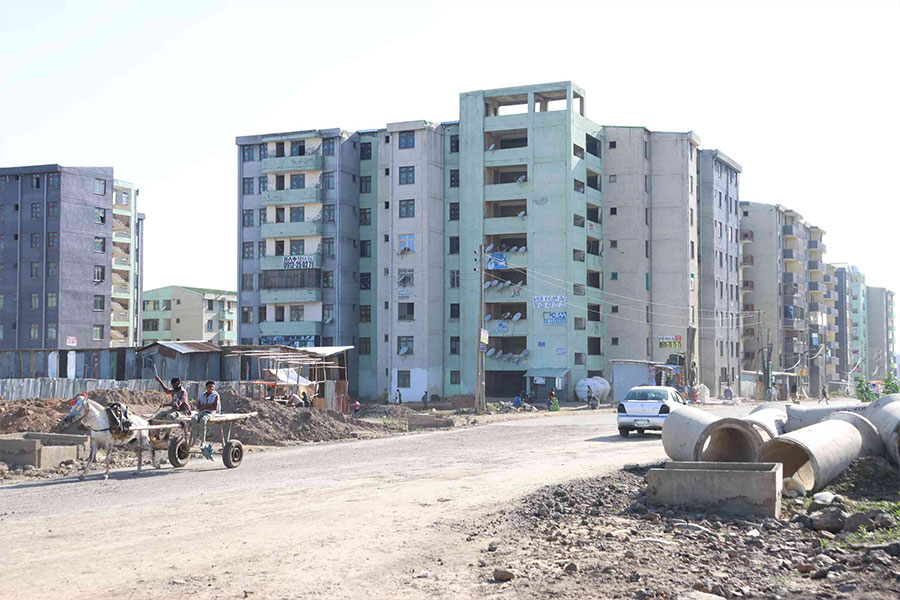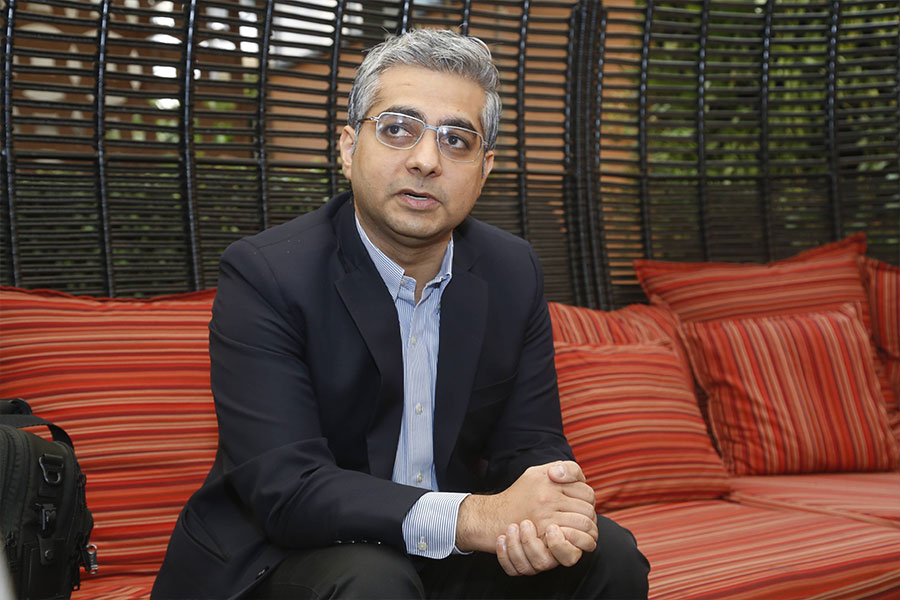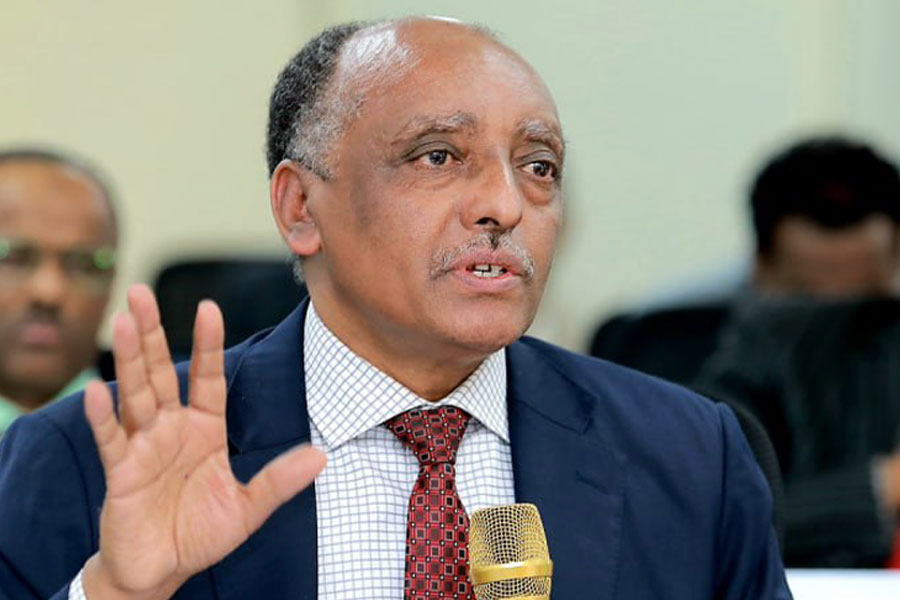
Radar | May 23,2020
In a period marked by industry expansion and ambitious regulation in the financial sector, Ahadu Bank, among the industry's latest entrants, has embarked on a course characterised by transformative potential yet apparent limitations. Despite early financial impediments, the Bank's leadership says it is positioning Ahadu, headquartered on Africa Avenue (Bole Road), to capitalise on digital adaptation and strategic partnerships to forge a path to profitability and robust service delivery.
Ahadu Bank, which launched operations in June 2022, has rapidly expanded, establishing 75 branches where 667 employees were deployed in its inaugural phase. It began with a strong capital base, boasting 503 million Br in paid-up capital, mobilised from 9,600 shareholders. A proactive approach to growth, as evidenced last year when shareholders voted to increase the paid-up capital to five billion Birr within three years, shows a robust start.
Despite its aggressive expansion, Ahadu Bank faced significant financial strain, reporting substantial losses of 193.68 million Br last year, which comprises about 30pc of its paid-up capital.
The Bank's President, Sefialem Liben, attributed these losses primarily to the hefty initial costs associated with establishing a foothold in the competitive banking industry. By comparison, its peer, Tsehay Bank, incurred a loss of 162 million Br in the same period.
Ahadu Bank has shown some promising signs despite its overall losses. It earned 29.93 million Br in interest income — a 37.9pc increase — and recorded 92.71 million Br in fees and commissions, along with 19.55 million Br in gains from foreign exchange dealings. However, these revenues were offset by interest expenses of 21.54 million Br and other operational costs.
Abdulmenan Mohammed (PhD), a London-based financial analyst, noted the trend among new banks facing substantial early losses due to the high-cost entry to the industry.
"The period to reach a level of decent returns becomes much longer," he said, cautioning a rough road ahead for newcomers. "This must have been frustrating."
According to Abdulmenan, executives will have to make up the accumulated losses in due time for Ahadu Bank to begin distributing dividends to its shareholders.
Despite these financial snags, Ahadu has laid a strong foundation in asset accumulation and customer deposit mobilisation. The Bank's assets have grown to 3.1 billion Br, and it has mobilised deposits totalling 2.03 billion Br. These efforts have yielded a loan-to-deposit ratio of 45.6pc, which, while half the size of the industry's average, represents a solid start for a new finance institution.
The Bank's strategy to overcome its early limitations involves a shift towards digital banking. Sefialem stated the role of technology in Ahadu's future, noting ongoing projects that he hopes enhance vital operational modules such as efficiency and security. He banked on partnerships with fintech companies and integrations with platforms such as Telebirr, EthSwitch, the Ethiopian Commodity Exchange (ECX), and Documents Authentication & Registration Services.
"These initiatives are central to Ahadu's strategy to differentiate itself in a crowded market and attract a tech-savvy customer base," the President told Fortune.
The banking industry has seen a robust expansion in total loans and advances, which grew by 24.3pc to reach 1.8 trillion Br by June 2023. A noteworthy aspect of this growth is the credit distribution across various economic sectors, demonstrating strategic diversification. Sectors such as manufacturing, domestic trade and services, and consumer banking primarily fuel this surge. Manufacturing received the highest proportion of loans, amounting to 23.2pc of the total, followed by domestic trade and services at 20.7pc, and exports at 15.7pc.
The shift towards increased private sector lending is particularly significant, with private sector credits making 55.9pc of the total banking sector credit.
In tandem with the rise in loans, total deposits across the industry also grew by 24.6pc to 2.1 trillion Br during the same period. Increases in savings and time deposits have primarily supported the growth in deposits. Notably, the share of total deposits as a percentage of GDP stood at 24.8pc by June 2023, illustrating a substantial liquidity pool within the banking industry.
However, the authorities are taking measures to steer this liquidity in the desired direction, including the imposition of mandatory purchase of annual bonds from state-owned banks and maintaining a uniform 14pc annual loan growth cap. These measures persist despite the National Bank of Ethiopia's (NBE) announcements in August aimed at curbing inflation to under 20pc.
However, the cap on loan growth limited revenue opportunities for banks such as Ahadu, according to Sefialem, who nonetheless remains optimistic about the Bank's ability to navigate these regulatory constraints by employing diversified investment strategies. He disclosed that his team has been looking for short-term loans, guaranteed investments, international banking, and investments in time deposits to compensate for the earnings.
Soaring expenses combined with modest revenues caused Ahadu Bank to make substantial losses. Sefialem argued that the core banking system, which commenced at the start of 2023, was the main culprit behind this—according to Abdulmenan, wages and other operating expenses soared due to the massive expansion of operations. He cautioned the management needs to keep an eye on this.
Ahadu Bank's managment, under Sefialem Liben, who assumed his role in October 2023 after stints at the central bank, Bank of Abyssinia, and the Development Bank of Ethiopia (DBE), is keen on steering the bank towards long-term sustainability. Sefialem joined Ahadu Bank replacing Eshetu Fantaye, the founding president.
Ahadu Bank's approach is outlined in a five-year strategic plan, which aims to carve out a niche market it can serve uniquely, Anteneh Sebsebie, board chairman, told shareholders during the general assembly in December last year.
For Abayneh Dinku, the branch manager at Bethel Area, it was a year of buildup. He saw the Bank focused on introducing products to customers and mobilising resources. Abayneh believes security issues may have affected performances, particularly among the unbanked.
"We need to double down on digital platforms," he said.
The commitment of Ahadu's management and shareholders to its vision is palpable. Desalegn Gudu, a founding shareholder who invested 20,000 Br, is upbeat about the Bank's future.
"I hope to see a dividend by next year," he said, echoing the shareholders' optimism.
Ahadu has a net equity of 470.75 million Br and a capital adequacy ratio of 50.9pc, demonstrating a sufficient capital base. Its liquidity level reveals substantial liquid resources. Cash and bank balances accounted for 32.8pc of the total assets, although Abdulmenan saw this as standard for a newcomer to the industry.
"The executives need to use the resources efficiently in the years to come," he told Fortune.
PUBLISHED ON
Apr 13,2024 [ VOL
25 , NO
1250]

Radar | May 23,2020

Fortune News | May 11,2025

Exclusive Interviews | Apr 22,2022

In-Picture | Jul 21,2024

Radar | Jul 17,2022

Life Matters | May 27,2023

Fortune News | May 15,2024

Radar | Aug 20,2024

Fortune News | Aug 18,2024

Radar | Jul 13,2024

Dec 22 , 2024 . By TIZITA SHEWAFERAW
Charged with transforming colossal state-owned enterprises into modern and competitiv...

Aug 18 , 2024 . By AKSAH ITALO
Although predictable Yonas Zerihun's job in the ride-hailing service is not immune to...

Jul 28 , 2024 . By TIZITA SHEWAFERAW
Unhabitual, perhaps too many, Samuel Gebreyohannes, 38, used to occasionally enjoy a couple of beers at breakfast. However, he recently swit...

Jul 13 , 2024 . By AKSAH ITALO
Investors who rely on tractors, trucks, and field vehicles for commuting, transporting commodities, and f...

Jun 28 , 2025
Meseret Damtie, the assertive auditor general, has never been shy about naming names...

Jun 21 , 2025
A well-worn adage says, “Budget is not destiny, but it is direction.” Examining t...

Jun 14 , 2025
Yet again, the Horn of Africa is bracing for trouble. A region already frayed by wars...

Jun 7 , 2025
Few promises shine brighter in Addis Abeba than the pledge of a roof for every family...